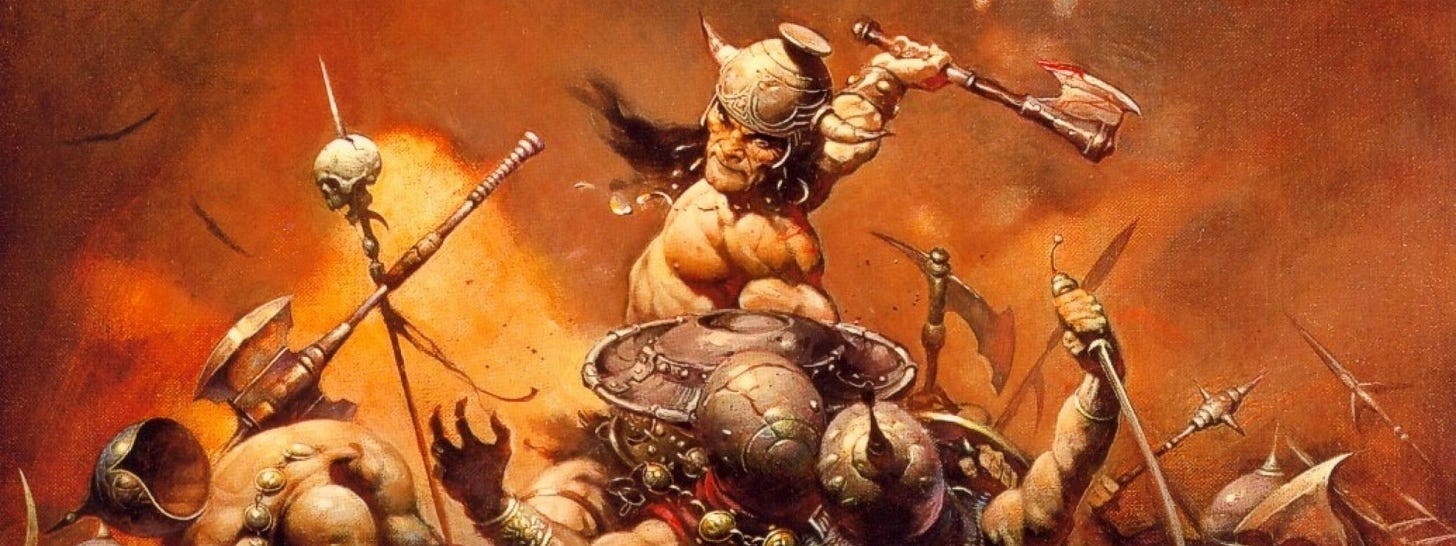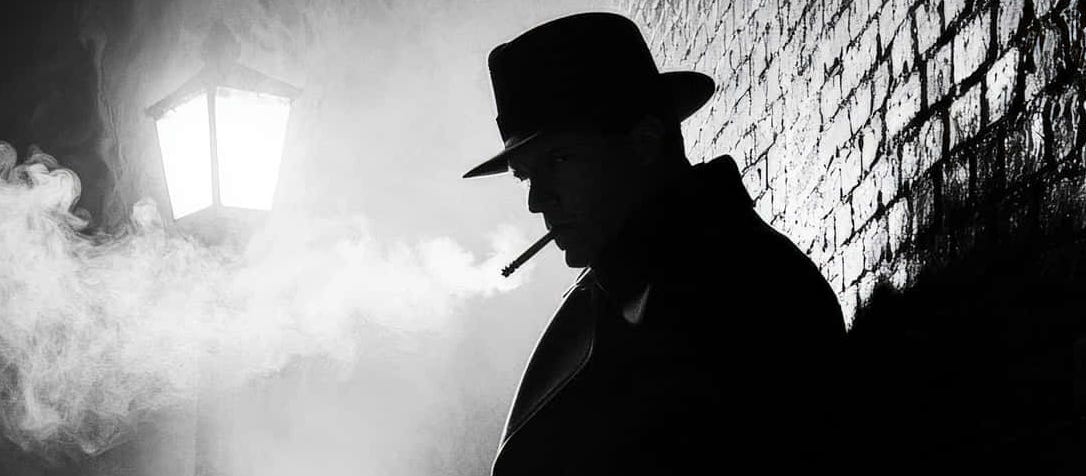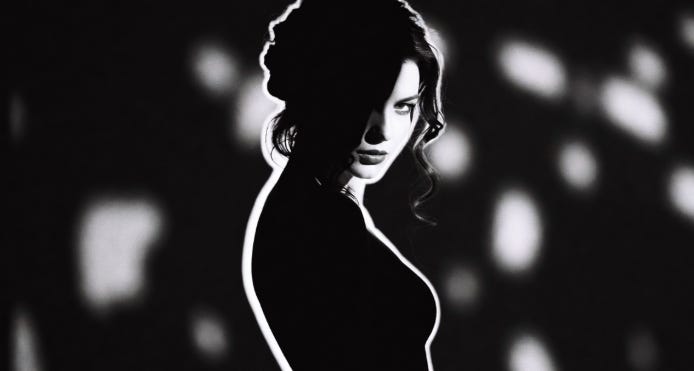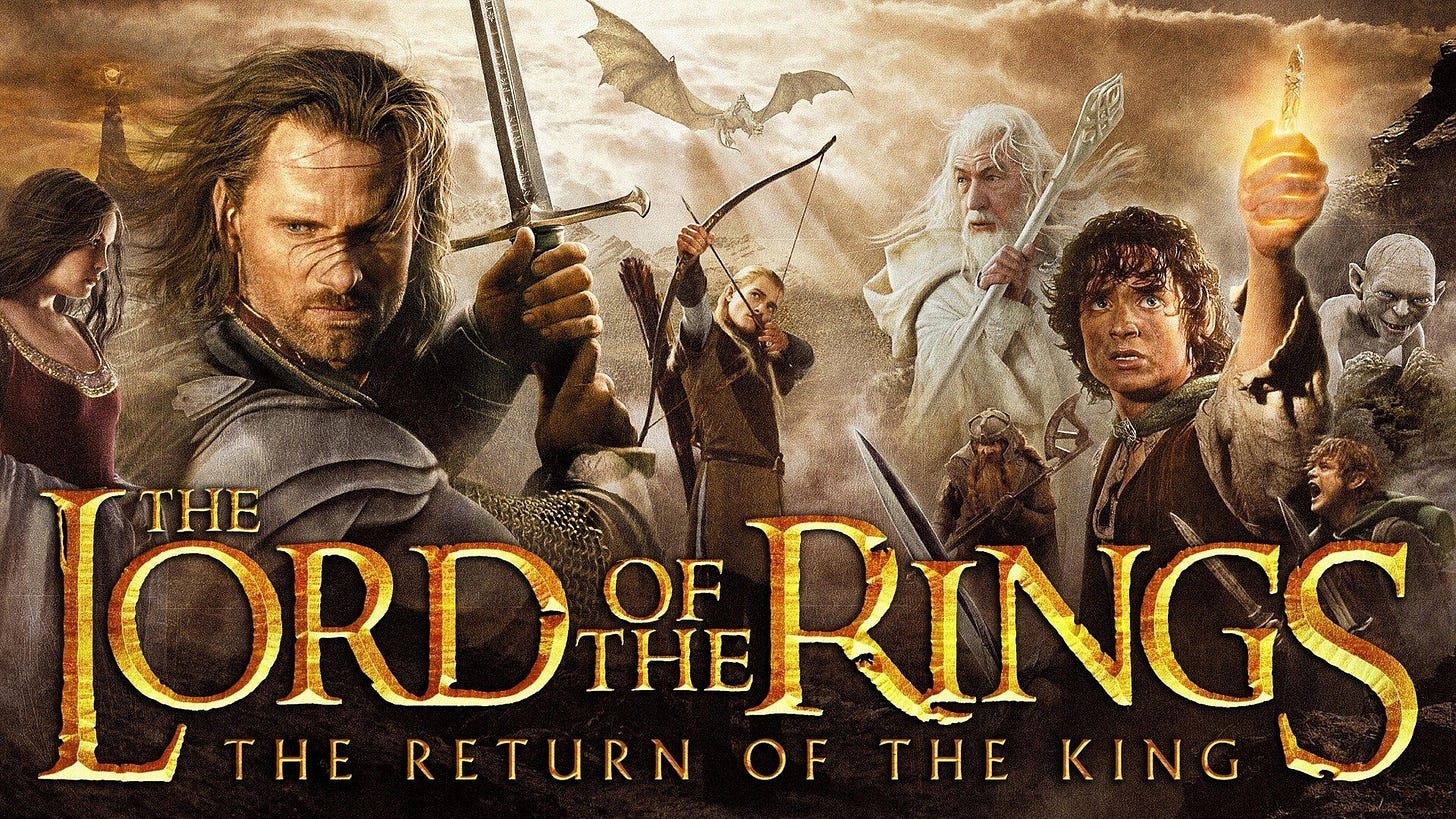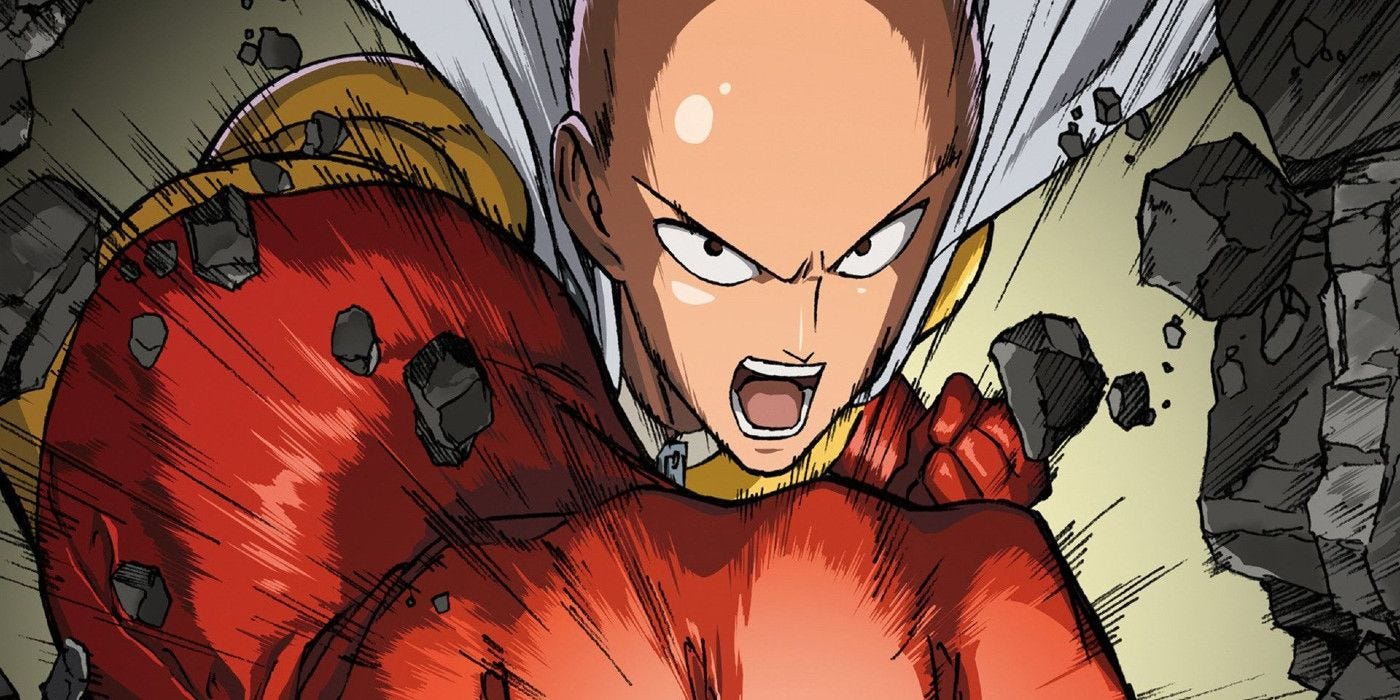What do men really want to read? The dichotomous answer is both simple and complex. Fiction has always been a mirror and a forge for the male psyche, crafting tales that tap into instincts honed over millennia—conquest, protection, rivalry, and that raw drive to push boundaries. In a world where modern narratives often dilute these elements under layers of caution or agenda, men gravitate toward stories that embrace them unapologetically. Whether it’s the thrill of power fantasies or the grit of morally complex heroes, masculine fiction delivers escapism that’s as entertaining as it is affirming. It’s not about exclusion; it’s about exploring the unique facets of male experience, from ancient epics to pulpy adventures, reinforcing values that build civilizations while indulging the wilder sides of human nature.
PRIMEVAL ANCHORS AS ARCHETYPE
At the heart of male-centered fiction lies the power fantasy, that unfiltered rush of imagining oneself as an unstoppable force. Men aren’t just reading for plot; they’re vicariously living out scenarios where strength, cunning, and sheer will dominate. Think of the barbarian archetype in Robert E. Howard’s Conan stories—a morally complex warrior-king slashing through a fractured world rife with sorcery, monstrous evils, and treacherous alliances. Conan’s exploits aren’t sanitized; they’re brutal, visceral, celebrating a man’s journey from outcast to ruler through muscle and mindset. It’s the ultimate male daydream: rising above chaos not through committees or compromise, but raw prowess. This resonates because it echoes real-life aspirations—climbing hierarchies, mastering skills, and claiming what’s earned—in a heightened, consequence-free realm.
Or James Bond, the ultimate masculine paradigm; a super-spy working for a top secret government agency to protect Queen and Country by venturing forth onto globe-trotting missions that see him pitted against world-conquering despots and masterminds. While on these missions, he’s equipped with state-of-the-art weapons, gadgets and sports cars like the legendary Aston Martin DB5, and when he’s not perforating waves of henchmen with bullets, he’s being accosted by a litany of worldly, drop-dead gorgeous women. Bond perfectly encapsulates the trappings of masculine psychology and what grabs men’s attention: a clear-cut mission, mechanical devices and beautiful specimens of the female variety.
These fantasies often feature exaggerated representations of men and women, intentionally unattainable ideals that fuel the imagination without apology. Male protagonists are towering titans of endurance and intellect, while female characters embody allure and mystery, like the classic femme fatale in noir detective tales. Dashiell Hammett’s Sam Spade or Raymond Chandler’s Philip Marlowe navigate indifferent, shadowy worlds as morally grey loners, confronting complex sexual desires through enigmatic women who tempt and betray. The femme fatale isn’t a villain to be reformed; she’s a catalyst for the hero’s internal battles, blending lust, danger, and deception. This archetype allows men to grapple with desires that society often suppresses, all wrapped in hard-boiled dialogue and rain-slicked streets. It’s fiction as a safe space to explore the push-pull of attraction and ambition, where exaggerated beauty and brawn serve the story’s pulse, not realism’s constraints.
THE INSURMOUNTABLE AS PARABLE
Drawing from ancient roots, masculine fiction often channels biblical underdog tales that instill hope against insurmountable odds. Stories like David and Goliath aren’t just religious lore; they’re blueprints for triumph through courage and ingenuity. A shepherd boy fells a giant with a sling and faith—it’s the essence of male resilience, proving that size or status doesn’t dictate victory. This theme permeates modern equivalents, where protagonists face overwhelming foes yet prevail through grit. In J.R.R. Tolkien’s Lord of the Rings, one of the most enduring male-centric series, men (and hobbits standing in for everyman) amass into ragtag armies to repel encroaching threats from foreign realms. Frodo’s quest isn’t a solo stroll; it’s bolstered by brotherhoods like the Fellowship, where warriors like Aragorn embody kingship reclaimed through battle. The saga’s appeal lies in its grand spectacle of loyalty, sacrifice, and the defense of homeland—values that echo the male impulse to protect kin and culture from existential dangers.
Beyond personal heroics, these stories delve into theoretical societal concepts almost exclusively tied to men: warfare, law enforcement, and family protection. Fiction becomes a sandbox for “what ifs,” simulating high-stakes scenarios without real-world fallout. War narratives, for instance, probe the chaos of combat and the bonds forged in fire, turning abstract strategies into gripping drama. It’s no coincidence that series like Warhammer 40K captivate with its lore-dense universe, a grimdark galaxy where humanity’s Imperium wages eternal war against aliens, heretics, and daemons. As a tabletop role-playing game with miniatures, it’s literally an exercise in game theory—deploying armies, calculating risks, and outmaneuvering foes in a setting where trillions clash for survival. The appeal? It mirrors men’s fascination with tactics and hierarchy, where every battle tests leadership and adaptability. Similarly, law enforcement tales in cyberpunk or action genres pit lone enforcers against corrupt systems, exploring justice as a personal vendetta.
CHAOS THEORY - STORY AS STRATEGY
Speaking of game theory, masculine fiction often frames stories as strategic puzzles, where characters navigate alliances, betrayals, and escalations like a high-stakes chess match. Popular Japanese mangas exemplify this: Dragon Ball’s Goku embodies the male drive for competition and self-improvement, grinding through martial discipline to protect his tribe and the world from escalating threats. Each arc ups the ante—new villains, power-ups, tournaments—tapping into that innate desire for respect within a group and the thrill of measurable progress. One Punch Man’s Saitama takes it to satirical extremes: a hero so overpowered he defeats foes in a single blow, yet grapples with boredom and the search for worthy rivals. These series aren’t just fights; they’re metaphors for male growth—honing skills, earning status, and safeguarding the larger societal order against chaos. The serialized format keeps readers hooked, mirroring real-life pursuits like sports or careers, where incremental wins build to epic payoffs.
Noir and dark fantasy push this further, thrusting protagonists into worlds indifferent to their struggles, forcing them to carve meaning from the void. The detective archetype—cynical, flawed, yet dogged—confronts moral ambiguity head-on, often alone. In these tales, the hero’s victories are pyrrhic, highlighting the cost of integrity in a corrupt landscape. It’s cathartic for men, who often shoulder silent burdens, to see characters wrestle with inner demons while battling external ones. Sexual dynamics add layers: the femme fatale isn’t mere eye candy but a symbol of temptation that tests resolve, allowing exploration of desires that blend danger with allure. This isn’t shallow; it’s psychological depth disguised as pulp, letting readers vicariously navigate the complexities of power, lust, and loyalty.
MARKET FORCES DRIVING THE CULTURE
In today’s market, masculine fiction is shifting gears. Traditional publishing, gatekept by political trends, often shies away from unfiltered male narratives, pushing readers toward indie markets and vintage gems. Platforms like Amazon and eBay make it easy to snag older classics—Howard’s Conan pulps, Chandler’s mysteries, or Tolkien’s epics—bypassing curated shelves. Indie authors are thriving by going direct: self-publishing power fantasies or gritty adventures that resonate without dilution. New male writers build audiences via social media, YouTube breakdowns of lore like Warhammer’s grimdark twists, Instagram art shares of manga-inspired heroes, or TikTok clips dissecting game theory in stories. It’s a bypass of the system, where creators connect straight with fans hungry for tales that celebrate competition, discipline, and protection without apology.
This renaissance isn’t just about nostalgia; it’s a response to a cultural void. Men seek stories that affirm their roles as builders, fighters, and guardians, wrapped in entertainment that thrills. From David’s sling to Goku’s Kamehameha, these narratives fuel the fire of self-improvement and hope. Warhammer’s endless wars remind us that defending what’s yours is eternal; Lord of the Rings shows brotherhood trumps isolation. Even in noir’s shadows, the detective’s persistence inspires. As indie voices rise, masculine fiction evolves, proving that stories for men—by men, about men—still hold power in a fragmented world.
The beauty lies in the variety: power fantasies for escapism, moral grey zones for reflection, societal simulations for strategy. It’s fiction as a proving ground, where exaggerated ideals spark real ambition. In an era of safe, sanitized tales, these stories stand defiant, reminding us why men read—to conquer pages, if not worlds.
SARJ OUT





